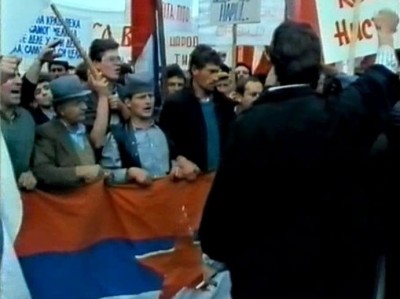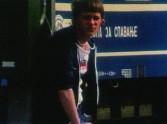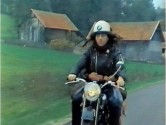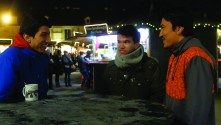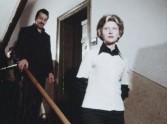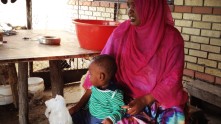
The Second Generation
(Druga generacija)
With Petar Bosancic, Vlastmir Sinko, Dragan Sokoljanski.
Yugoslavia, 1984, digital video, color, 88 min.
Serbo-Croatian with English subtitles.
Copy source: Filmmaker
Initially a TV film, The Second Generation started life as The First Trimester of Pavle Hromis (Prvo tromesecje Pavla Hromisa), finished and broadcast in 1983. After the latter’s excellent reception, Zilnik was approached by a Belgrade production company and tasked to transform the work into a narrative fiction. The end result was The Second Generation, an 87-minute hybrid documentary that travelled Yugoslav, Hungarian, Polish and Czechoslovak small screens in what was then an excitingly elaborate network of international distribution. Shot on 16-millimeter, the film follows schoolkids—children of ex-Yugoslavs in Germany, Australia, Austria and Canada—in their “return” to an anything but homey homeland. Unsurprisingly, the teens encounter issues fitting into an educational environment that to them appears alien, or at best ambivalent. “I don’t know any of this … I have no idea what to do,” one adolescent born and raised in Melbourne laments during a high school exam on the essentials of socialist theory. “Well, over there they have capitalism, so there are no Marxist studies at all.”
One of Zilnik’s sharpest takes on identity under globalization (as well as one of his most driving soundtracks), The Second Generation involves two important threads. First is the director’s abiding interest in narrative, fictionalization, scripting and reenactment, which has carried through to his most recent semi-observational endeavors. Here, Zilnik’s experiments approximate the thought of Cesare Zavattini, another giant of film realism. “People understand themselves better than the social fabric,” wrote the Italian in 1953. “And to see themselves on the screen, performing their daily actions—remembering that to see oneself gives one the sense of being unlike oneself, like hearing one’s own voice on the radio—can help them to fill up a void, a lack of knowledge of reality.” Second is Zilnik’s incessant struggle to expand and diversify the assortment of sites at which contemporary migration is understood to occur. On top of venturing to heavily policed borders (such as in Fortress Europe), refugee encampments just outside the EU (Logbook Serbistan), and the asylum centers of Western Europe (The Most Beautiful Country in the World), Zilnik is also an indispensable auditor of spaces in which human flow manifests less visibly. Internal and informal displacement, second generation returnees, subjects stuck between two or more identities, states, authorities: these too are of first-order importance to a filmmaker whose opus is an extended argument for reading global migration as the political issue of our time. Guest work, emphasizes Zilnik, is not a phenomenon of the elsewhere, taking place outside the everyday here and now. It is instead a feature of innumerable human lives—in historical communism and in financial capitalism, at home and far abroad.
Across these five screenings, Zilnik offers us a comprehensive spectrum of vantages, sites and trajectories. After his initial sojourn as cineaste-Gastarbeiter in the FRG, he reported on second-gen children returning “home,” internal émigrés scouting Yugoslavia on old timers, exiles stuck in the thickets outside Schengen, and residency applicants after arriving in Western Europe. Five viewpoints and directions, an entire diapason of aspiration and (im)possibility. To this, the series adds Za Ellu, Zilnik’s ten-minute skit about an aging jazz pianist who is unable to stop playing after hearing of Ella Fitzgerald’s death on the TV. His wife—“I need money, not music!”— ultimately throws him and the instrument out of their Novi Sad apartment, leaving the anguished, grieving musician to play Ella on the street during a rainstorm. Another historical tragedy, another instance of expulsion, this time intimate, local, and absurd.

